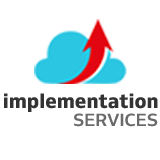The active pharmaceutical ingredient (API) making process is complex and delicate. Any misfunctioning can lead to revenue loss and even product recalls. Manufacturers must build a resilient API production process that can withstand disruptions to maintain the quality and safety of their products. This blog post will explain how artificial intelligence can be used in API manufacturing to improve production efficiency and quality.
API Manufacturing Process
The manufacturing of APIs can be classified into synthetic and biologic categories, depending on the method of production:
The process for producing synthetic APIs differs from that of biological APIs. In the case of the former, a chemical reaction is used to create the active ingredient. The most used method for producing synthetic APIs is crystallization. In this process, a liquefied active pharmaceutical ingredient is purified by being precipitated from the solution as a solid crystal.
Biologic APIs are created through biological processes such as fermentation or cell culture. Microorganisms or cells are used to produce the active ingredients in biologic APIs, which tend to be more costly and complex than synthetic APIs.
How and why are API manufacturers applying artificial intelligence?
AI and Cloud ERP are used in the production processes of many API manufacturers to create new and innovative drugs. Few benefits of using AI in API manufacturing include:
Using a purification process to remove contaminants from the material can result in improved efficiency, quality and throughput. It can also reduce costs and improve product stability.
Let’s look at each of these benefits in more detail
Enhanced efficiency and quality/superiority
Using artificial intelligence in API manufacturing can develop efficiency and quality. Machine learning allows for predictive analysis of potential problems, which helps prevent disruptions from happening. In addition, AI can analyze data to track trends and patterns that may not be seen by the human eye or apply more sound analytical methods. This helps to improve product quality by detecting problems with product purity, stability and other chemical parameters.
Increased Production Scale
Throughput is the speed at which a system produces products. With the ease of artificial intelligence and advanced analytics, manufacturers can increase throughput by identifying bottlenecks in production and providing analytics on notifying the manufacturing system for better production yields (e.g., faster reaction times or greater purity). It can help to reduce production times and increase output. In addition, AI and Cloud ERP can be used for predictive maintenance, which can help to prevent equipment failures and minimize downtime.
Cloud ERP can reduce the costs of your business.
Artificial intelligence and cloud ERP can help pharmaceutical companies reduce the costs of API manufacturing. Machine learning enables these businesses to optimize their processes and use resources better (optimize raw materials, minimize waste, and decrease energy consumption and operating time).
Product stability is enhanced.
Using AI systems and Cloud ERP in the production process can help to improve production stability by tracking and correcting any errors early on. This helps ensure that the final product’s active pharmaceutical ingredients are not affected by changes in the manufacturing process.
API manufacturers integrate artificial intelligence (AI) and cloud ERP into their production processes. AI has many potential applications in API manufacturing, including:
- AI and Cloud ERP in research and development
- Use of AI and Cloud ERP for Predictive maintenance
- Helps in forecasting manufacturing
- Image Analysed and analysis on the production line
Each of these applications can improve efficiency and quality in API production. Let’s take a closer look at how each one works.
Artificial Intelligence and Cloud ERP Systems for Research and Development.
Pharmaceutical companies have used artificial intelligence to improve their R&D operations. One practical example of applying machine learning is using it for process development.
Predictive models can be built using process modelling to understand better the conditions required for different reactions. This view can help tack better process conditions and reduce the number of experiments needed for development. In addition, AI and cloud ERP can also be used for target identification during the early discovery stages.
Using machine learning algorithms and cloud enterprise resource planning (ERP) software can speed up the identification of active molecules from large data sets. This can help improve hit rates during drug discovery and reduce the time and resources needed for lead identification.
Artificial intelligence and Cloud ERP can play a significant role in improving pharmaceutical research and development. Companies can achieve better results using machine learning algorithms while reducing costs and time requirements.
Predictive manufacturing processes allow manufacturers to predict how parts will be produced.
Predictive manufacturing is a form of artificial intelligence that uses machine learning algorithms and Cloud ERP manufacturing to predict how a production process will behave under different conditions. By using predictive manufacturing, manufacturers can identify potential problems before they occur and take corrective action, improving efficiency and quality while reducing costs.
In addition, pharmaceutical companies have used predictive manufacturing to monitor the production of drugs. A predictive control algorithm can be used to assess the state of a manufacturing process at any given time, providing feedback that can be used to adjust the process on the fly. By using forecasting control, manufacturers can ensure that products are produced within specifications and minimize the risk of failure.
Predictive manufacturing can be used in the batch-making of active ingredients. Differentials in the process can affect the quality of the final product, and detecting and correcting errors can be challenging using this approach.
Predictive manufacturing can be used to address problems related to product quality and throughput. Manufacturers can use predictive models to track real-time information on how the process manufacturing functions. In this scenario, the AI algorithm determines the output of a given system based on past recorded data. This data can be used to maintain the measures of the functions as needed. This way can help to improve throughput and ensure that products meet quality requirements.
API manufacturers must ensure that their products meet quality requirements and that the yields from continuous manufacturing are kept on the desired level. One way to do this is by continuing the process and recognizing how changing environment parameters will affect the final product.
Artificial intelligence and Cloud ERP solutions can make predictions applicable in continuous manufacturing to monitor active pharmaceutical ingredients (APIs) during production.
While real-time data is available, manufacturers need to run products through processes with altered parameters and do so without a promise of quality at the end. Machine learning and Cloud ERP are used to make predictions about the process. By using AI models, manufacturers can better understand how the process is performing and identify any changes that need to be addressed.
Waste reduction techniques include minimizing batch losses.
API manufacturers face some challenges, including minimizing batch losses. These can be reasoned by multiple factors, including errors in the complexity of the manufacturing process, contamination and product degradation.
Manufacturing APIs is a complex process; even a slight variation in the process can result in the loss of an entire batch. To prevent this, pharmaceutical companies must continuously monitor their production processes to ensure they run smoothly.
Manufacturers often have to deal with product losses. SPC and MVDA are two approaches manufacturers can use to minimize these losses.
However, statistical process control and multivariate analysis are limited in their ability to identify brief changes in pharma production that can lead to significant variations in the quality of outputs. In addition, it can be challenging to detect and correct errors when using this approach.
To address these limitations, manufacturers in the pharmaceutical industry are increasingly turning to artificial intelligence solutions that use predictive modelling to identify relationships between process parameters and product quality. All the recorded data can then be used to adjust process parameters.
Artificial intelligence and Cloud ERP use detect patterns that are not detectable by humans and adapt as the manufacturing process changes, allowing them to maintain a high degree of accuracy in predicting product quality. AI software applied for waste reduction also plays a critical role in the environmental impact of drug production.

Sangeetha brings 20 years of experience in Information Technology which includes Solution architecting, building micro services, research, and evaluation of business applications, integrating apps.
















